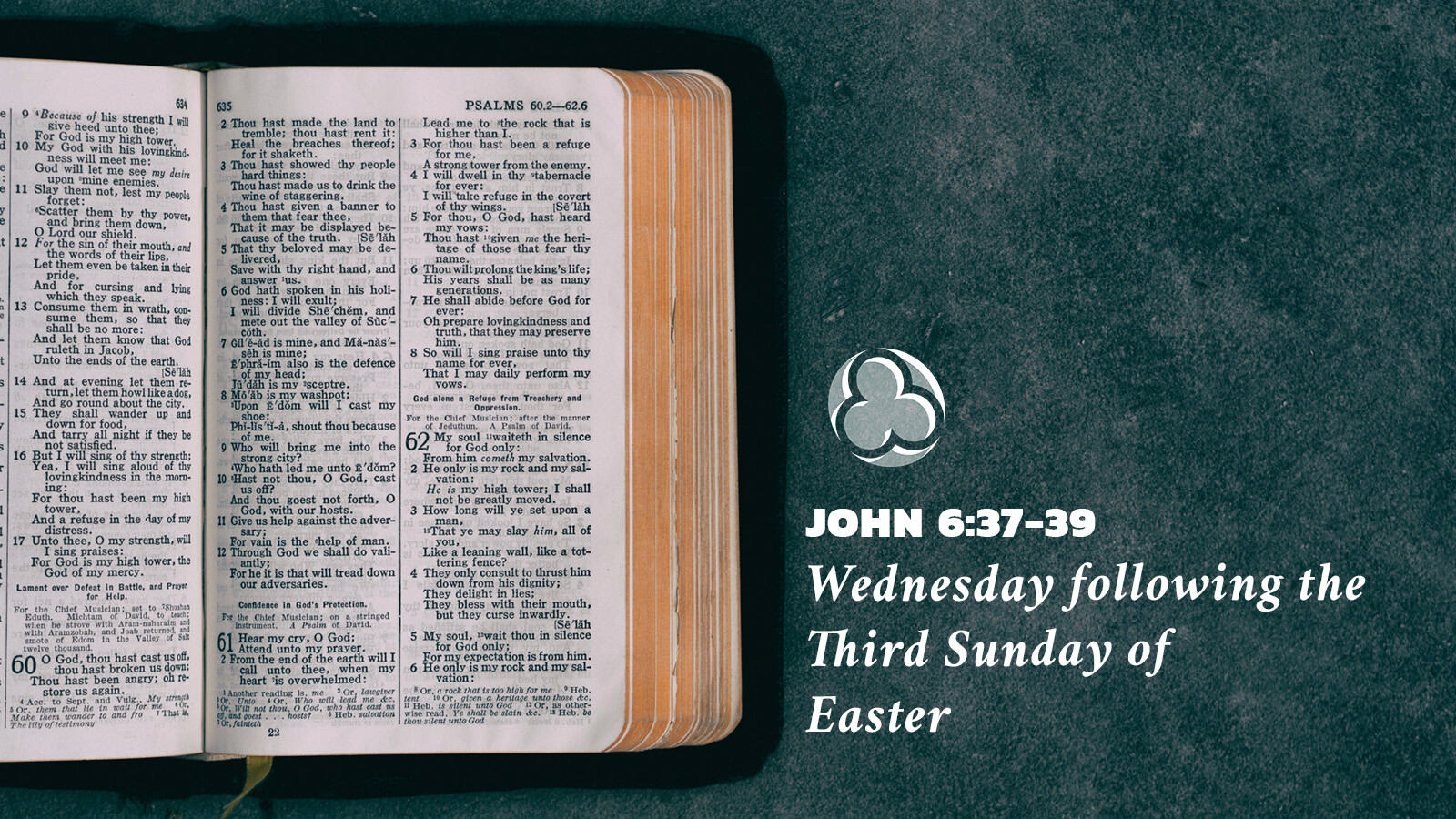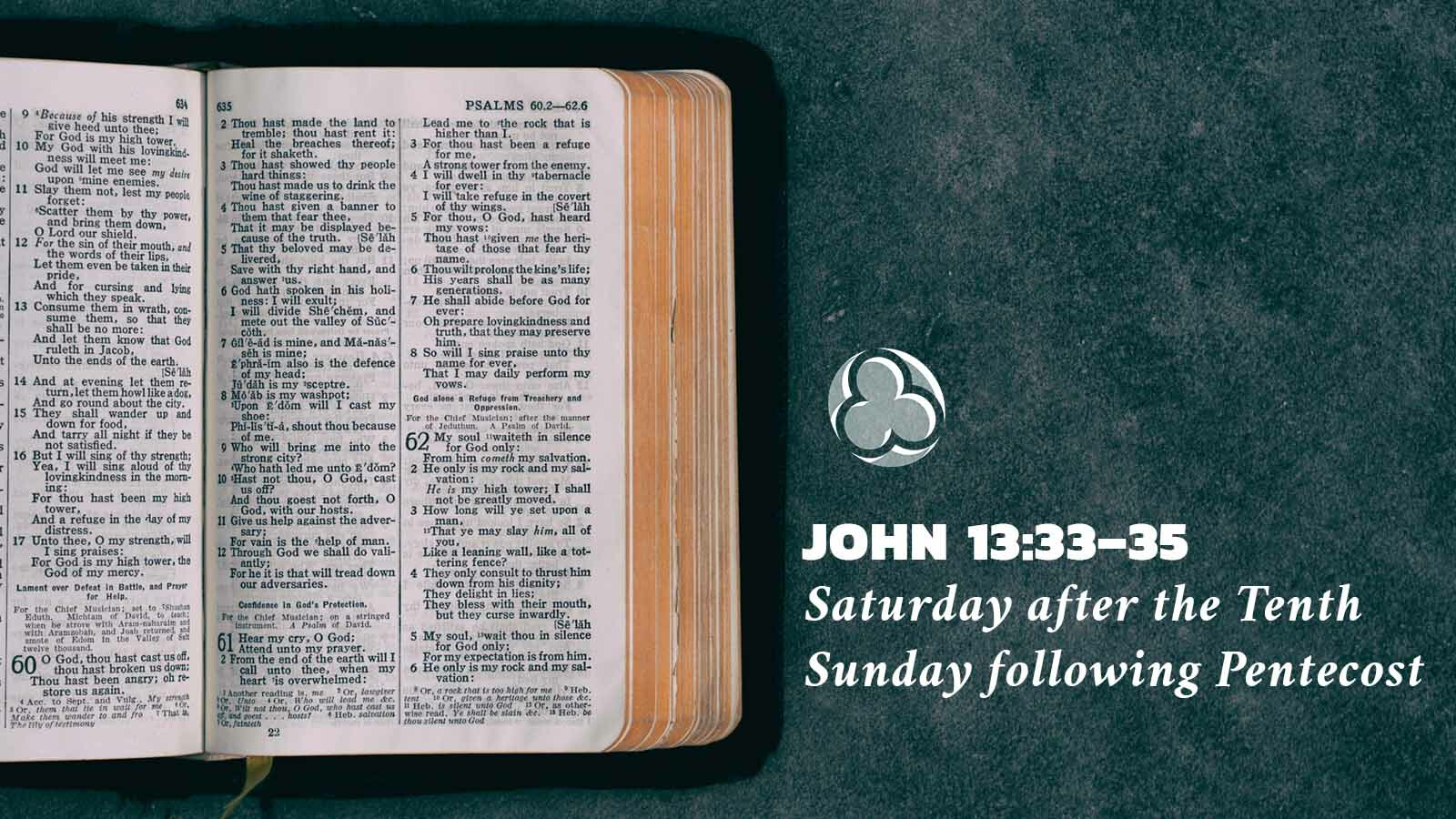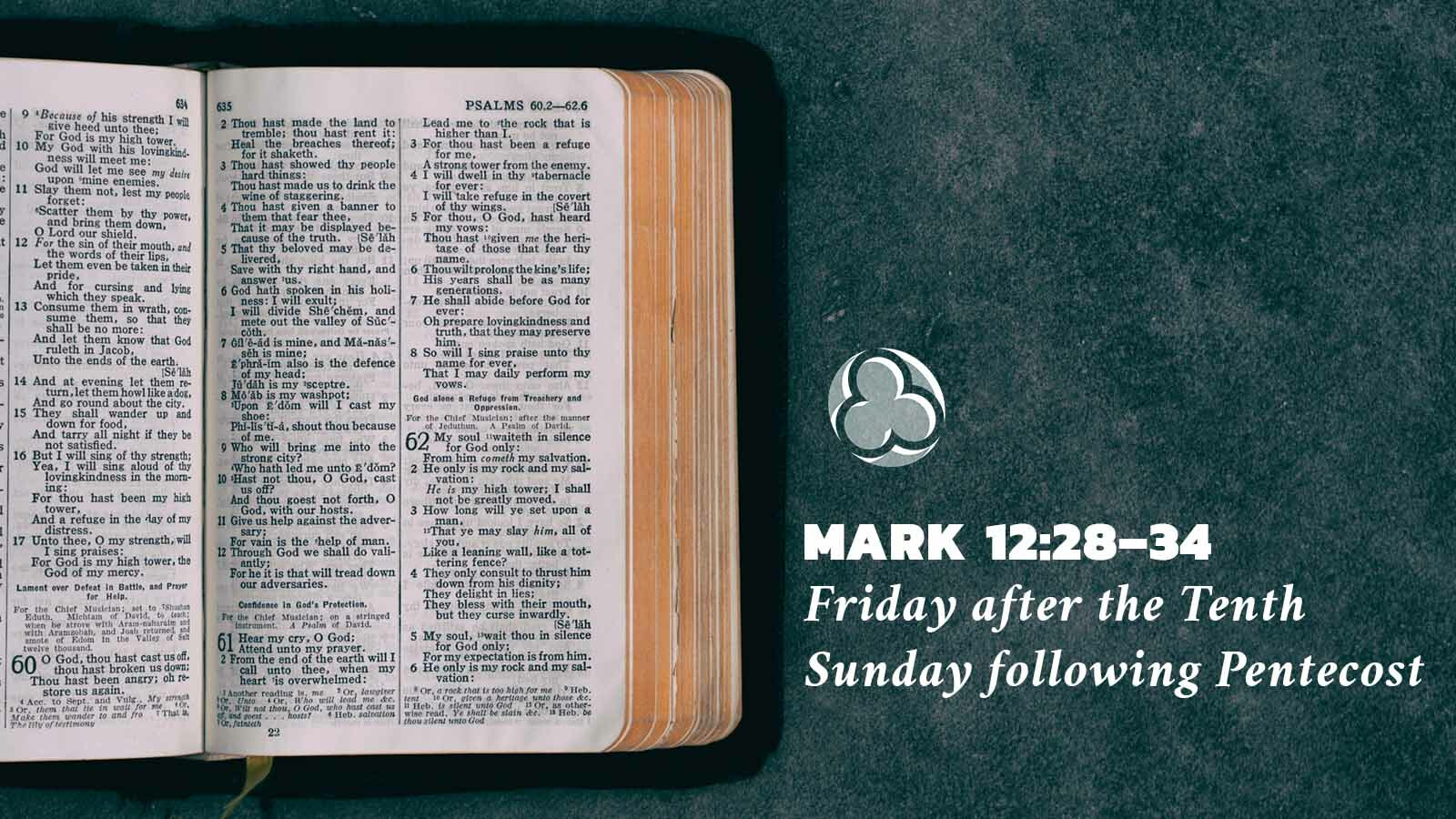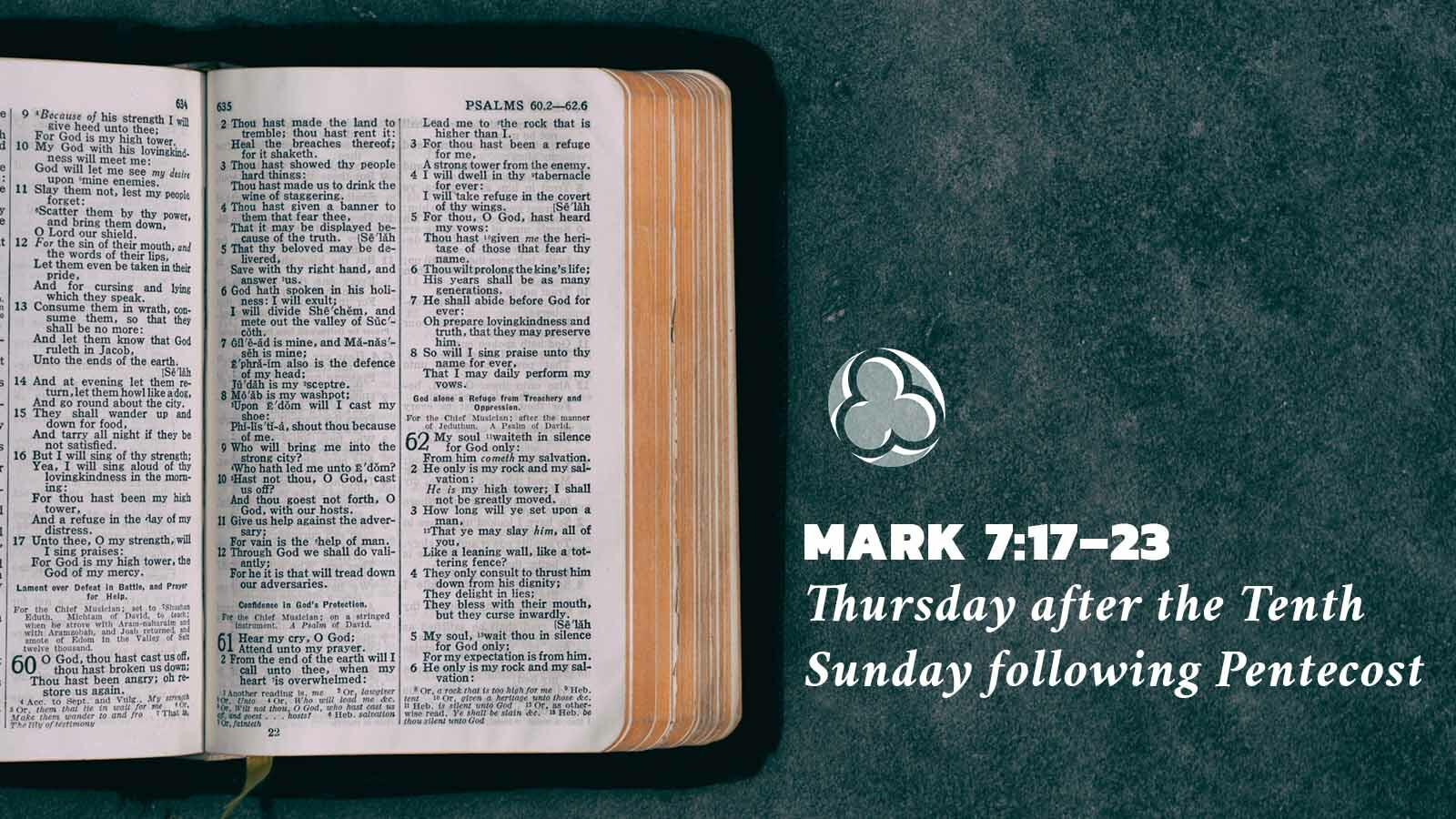
Everything that the Father gives me will come to me, and anyone who comes to me I will never drive away; for I have come down from heaven, not to do my own will, but the will of him who sent me. And this is the will of him who sent me, that I should lose nothing of all that he has given me, but raise it up on the last day.
- John 6:37-39
It’s clear to Trinity choir members that our Hymn #335 “I Am The Bread of Life” is a real crowd pleaser. It’s the one with the refrain “And I will raise them up on the last day”, always sung at Easter, but also on several other Sundays during communion time. A real “pew-kicker”, my dad would say. Otherwise modest and somewhat stoic Episcopalians can be seen on those days raising their arms in the air and singing loudly. Which is lovely to see.
I think most Christians (including me) have a notion that “the last day” will come as an actual moment in time. An unexpected time. “Like a thief in the night” we are told, so I envision a period lasting maybe a few hours or at most a few days when “it all goes down”. At which time Jesus and his angels will descend upon earth, perform some super awe-inspiring acts (checking boxes from the Book of Revelation, of course) and accomplish the last day’s business, which is the final glorification of God’s people and their reconciliation back to God for the first time since Adam and Eve ate the apple. And those living or dead who had been smart enough or lucky enough to have heard of Jesus, and believed, and been “saved” by that point, will be raised up to forever live with God, while the others will be cast into unquenchable and eternal unpleasantness. Isn’t that basically the idea that many Christians have? I believe it is. And I believe we may have the wrong idea.
I have come to believe in salvation as both a hopeful (possibly terrifying) moment in the future as well as an ongoing process happening right now. Why can’t it be both at the same time? Maybe the Kingdom has already come. Our reading from John’s gospel today seems to suggest this - God intends all of us to be reconciled to him and the timing probably doesn’t matter much, even though this “last day” business is problematic for those of us who happen to live in time. God does not. Although Paul on one hand presents salvation as occurring immediately “at the sound of a trumpet” in his 1st letter to the Corinthians, he uses both past tense and future tense language to refer to salvation in other letters and writings. For example, he tells the faithful in Ephesians 2:8, “You have been saved” but then refers to members of the church in Corinth as those “who are being saved.” And in the letter to the Romans he says that “Salvation is nearer to us now than when we first believed” which to me suggests a process, not simply a binary outcome. But I think the most useful of Paul’s salvation references may be in his letter to the church in Philippi: “Therefore, my beloved, as you have always obeyed, not as in my presence only, but now much more in my absence, work out your own salvation with fear and trembling; for it is God who works in you..."
Musical Reflection - The Kingdom has Already Come - Iris Dement - Lyrics link
O God, who wonderfully created, and yet more wonderfully restored, the dignity of human nature: Grant that we may share the divine life of him who humbled himself to share our humanity, your Son Jesus Christ; who lives and reigns with you, in the unity of the Holy Spirit, one God, for ever and ever. Amen.






Login To Leave Comment